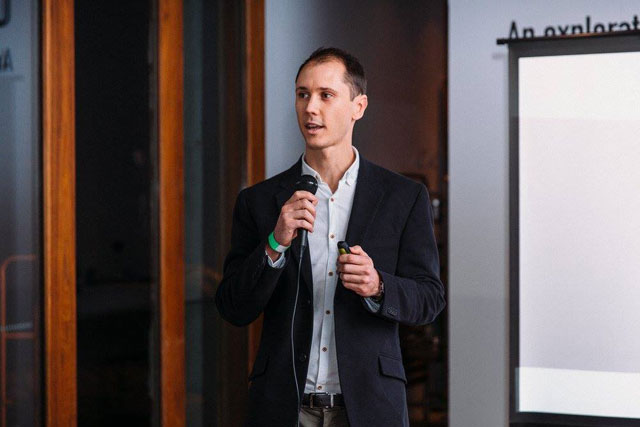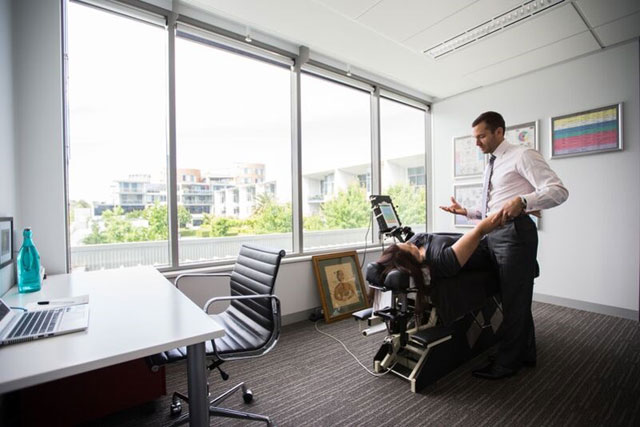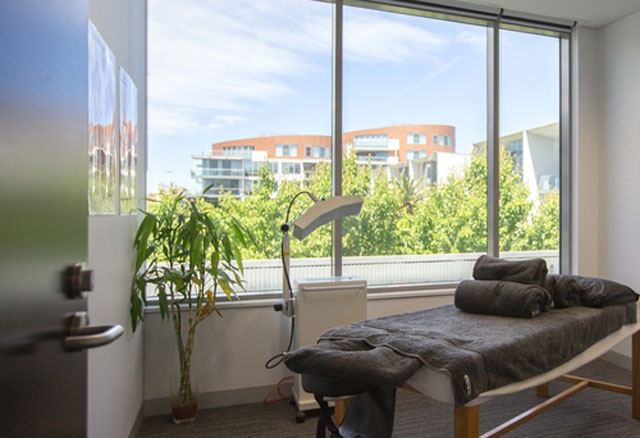Are we heading towards a collaboration between Holistic Healthcare and Medicine?

Locky Gould speaking at the latest UC Alumni TEDx Canberra Adventure Open Mic Night
With the worst of the flu season (hopefully) behind us, there has been many discussions about Eastern vs Western medicine treatments. But what exactly is the difference between the two? And what are the benefits of seeing your naturopath instead of your local GP?
Western medicine takes shape through its Ancient Greek history and sees the mind and body as two separate entities. Eastern medicine also traces back to thousands of years and focuses on healing the patient by identifying their individual needs and prescribing a unique solution as a whole.
Nowadays there has been a strong shift towards holistic healthcare coming from the community; however there are still many who do not understand what it is or how they can benefit. To put it simply, holistic healthcare is a form of treatment that focuses on the whole individual including mental and spiritual wellbeing.
University of Canberra alumnus Locky Gould is one of those individuals working in the industry. A licensed Pillar Practitioner, Locky spends his days as both a practitioner and a business manager for The Pillar Practice.
The Pillar Practice
A holistic healthcare clinic, The Pillar Practice uses a mixture of Eastern and Western healthcare to lift people out of a multitude of disease states and into the highest and purest form of themselves.
Eastern Medicine is focused on healing the person as a whole, focusing on the mind, body and soul aspects that may be blocking the individual from being in their optimum state of health
“It can go a lot deeper than Western modalities as it looks into energy centres and even the soul. Western modalities are more aligned to the physical diagnosis that someone has come in with and the treatment of the symptoms – not necessarily the cause.”
He believes that Western medicine is more pragmatic and focuses on what can be measured and treating the symptoms, whereas the Eastern side looks at the person as a whole and the underlying reason that the condition has arisen in the first place.
The Pillar Practice merges the two differing forms of medicine to give a purely holistic technique, taking the client through a program of care or a ‘journey of healing’ that is broken up into stages. The treatment is non-invasive and medication-free, using a variety of methods to treat the problem. These include applied kinesiology, energetic medicine, chiropractic and nutritional medicine.
They currently see between 50 – 80 patients a day who suffer from all types of conditions from depression, anxiety and PTSD, to chronic psychical pain, autoimmune conditions and cancer, or people who are simply choosing the healthiest and happiest life possible.

Primary Healthcare Provider, Dr David Comyns (Chiro) treating in the main clinic at the Pillar Practice
Managing Stress
When asked how to manage stress, Locky says that The Pillar Practice uses a unique technique for treatment for their clients, which begins by focusing on accepting the past and having awareness for the current situation.
“We have unique techniques that we use within our program of care that empower the client, as we don’t want out clients to become dependent on the clinic, but instead get to a point where they are self-reliant.”
One of the tools they use is a quick, but effective technique called ‘Sealing’ that brings the feeling of calmness and clarity. Sealing helps to focus the mind; using visualisation techniques and attuning the clients to be able to deliver the energy themselves. Locky gets his clients to start and end the day with this as it allows them to be calm and resilient when starting the day and composed and clear when moving into sleep at night. This also allows for a deeper, restful and restorative sleep.
Through this treatment one of the main goals is to get clients to ‘slow down’- the more you have on your plate, the less you can do.
“It might sound like a catch 22” says Locky, “But when you take time to slow down you will get more done; because you are more refreshed, effective and efficient."
Do you see an athlete training 24/7? No! You need to make time to recuperate otherwise you will feel fatigued and become overloaded.
This is a simple message to understand, but one that is hard to initiate as we are wired to ‘work hard’ not ‘work smart’. Too often there is an emphasis on work-life balance, instead of ‘life-work’. Locky stresses that individuals must start putting life before work to come back into balance with ourselves, which will increase our ability to manage stress.

The Pillar Practice Soft Tissue Therapy room
Working Together
Since both Eastern and Western medicine work with similar, but different views on health and the body, they are able to complement each other well. Some individuals may try either Eastern or Western treatments first and then add the other as required. Correct use of both conventional and alternative methods can assist in the body’s innate healing response.
While many individuals have turned to holistic healing, it is important to remember that every client and their issues and needs are different. Ultimately it is up to that individual and their healthcare practitioner to determine the best course of treatment for them.
To find out more information on the Pillar Practice and the Pillar Practice Energy Treatments visit thepillarpractice.com.au
Words by Stephanie Cossetto, images courtesy of Locky Gould
 | Locky GouldBachelor of Science in Psychology, University of Canberra (2011)Locky Gould graduated from the University of Canberra with a Bachelor of Science in Psychology in 2011. He has a strong background in volunteering, spending 12 months as a Manager on Christmas Island with the Asylum Seekers. Locky is a licensed Pillar Practitioner and currently works at The Pillar Practice in Canberra. Locky was a speaker at the recent Tedx UC Open Mic Night where he spoke about actioning ideas. |

